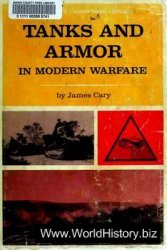The years immediately following World War II brought much-needed economic prosperity to Lebanon, with Beirut becoming a popular Mediterranean resort for the wealthy. In 1945 the country became a founding member of both the Arab League and the United Nations and was known as the "playground of the Middle East."
The National Pact was able to maintain peace without the stationing of foreign troops on its soil as long as no call for pan-Arab unity came from outside the Arab nations. When Israel declared its independence on May 14,1948, Lebanon joined Syria, Jordan, Egypt, and Iraq in immediately refusing to recognize the new Jewish state and declared war on the Zionist settlers.
Following the Israeli victory in its war of independence, many of the 400,000 Palestinian refugees who were driven out of the conquered Israeli territories fled north into Lebanon. Also during this period, the devaluation of the French Franc, to which the Lebanese currency was tightly coupled, devastated the economy. Moreover, Lebanon's refusal to enter into a full economic union with Syria brought disruption of trade with that country, escalating unemployment and the cost of living.
In 1955 the World Bank granted Lebanon a much-needed loan of US$27 million for the Litani River project, which doubled the available electric power and promoted irrigation. With the rapid influx of Palestinian Arabs, Lebanese Muslims critically questioned the National Pact, which distributed seats in the national assembly proportionally between Christians and non-Christians. Mounting Muslim discontent combined with a cry for Arab unity by Egyptian president Gamal Abdel Nasser resulted in six months of anarchy beginning in May, 1958. At this time the Lebanese government appealed to the United States for ground troops to establish a temporary peace.
The presidency of Camille Chamoun from 1952 to 1958 coincided with the ascension of Nasser in Egypt. Chamoun invoked Nasser's wrath by refusing to terminate diplomatic relations with Britain and France, which had united with Israel in attacking Egypt during the 1956 war over the Suez Canal.
During this time, Lebanon received $20 million in financial, economic, and military assistance from the United States through the Eisenhower Doctrine. These events caused other Middle East nations to view Lebanon as having become too pro-Western. One indicator of this was that Lebanese women obtained the right to vote and hold office in 1953.
In 1958 Lebanon announced that it would not join either the United Arab Republic, a union of Syria and Egypt, or the Arab Federation, a union of Iraq and Jordan.
In 1961 an unsuccessful coup attempt to overthrow the government was led by military and civilian groups that wanted to unite the country into a new greater Syria. Muslims and Christians existed relatively peaceably under a weak central government until about 1969, when Lebanon's political structure, based on a floating
Census, was moving toward the outbreak of what would become possibly the most destructive civil war of the twentieth century.
The urbanization of Lebanon brought over 40 percent of the population to Beirut, which became deeply divided into quarters based on religious affiliation. Lebanon's role within the Arab world also became increasingly complex, as many Syrians and Lebanese declared that the French decision to separate Lebanon from Syria in 1920 was invalid.
Jordan's civil war during "Black September" of 1970 saw the Jordanian army led by King Hussein decisively defeat the Palestine Liberation Organization (PLO), forcing the relocation of PLO headquarters to Beirut. The percentage of the Palestinian population of Lebanon rapidly rose to approximately 10 percent, with these displaced Arabs feeling betrayed by other Arab nations.




 World History
World History









